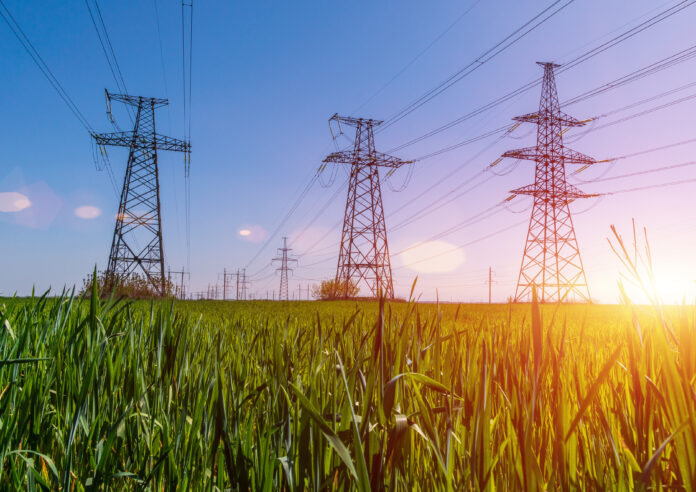
Ordinarily, the first Tuesday after November 1 is filled with a flurry of political excitement; after months of campaigning, exhausted campaigns and their candidates wait anxiously for the voters to decide who best deserves to be entrusted with high government office. This November may be a bit quieter, however. There are no federal elections this year, gubernatorial elections are taking place in only three states this year, and only four states’ legislatures are up for re-election.
Based on the offices that are open, and the candidates in each contest, the state-by-state energy outlook has the potential to shift dramatically based on the outcomes of a number of these elections.
The Governors’ Mansions
The gubernatorial races will be especially interesting to watch. In states that are usually considered Republican bastions, we are observing unusually competitive and electable Democratic candidates. The governorships of Kentucky, Louisiana and Mississippi – all states President Trump carried handily in 2016 – are all hotly contested this year.
In Kentucky, first-term Governor Matt Bevin (R) is facing-off against Kentucky Attorney General Andy Beshear. Governor Bevin supports an “all of the above” energy strategy. Specifically, he has been very active in the operations, and makeup, of the Kentucky Public Service Commission (KPSC), the regulating authority for the intrastate rates and services of electricity, natural gas, and water, among numerous other items, for the state of Kentucky.
Back in 2016, Governor Bevin ordered the reorganization of KPSC, eliminating 10 of the entity’s 85 positions and shifting engineers to the Energy and Environment Cabinet. His current challenger, AG Beshear, even spoke out against the shuffle at the time of the move. Beshear has been very active as well with KPSC. Over the past three years that Beshear has served as Kentucky’s attorney general, his office has intervened on exorbitantly-high utility rates and brought the issues before the KPSC twelve separate times. Kentucky comes in 40th out of 50 jurisdictions with the lowest cost of electricity.
During the next governor’s term, all of the members of the KPSC will see their terms expire. Whoever wins the governorship will have a major opportunity to dramatically shift the composition and direction of the KPSC’s membership and energy policies. Governor Bevin was recently ranked the least popular governor in the nation back in April 2019 and a late August internal poll by AG Beshear’s campaign showed the challenger ahead by 9 percentage points. Another Democratic Attorneys General Association poll from a week prior showed the same data. It should be noted that polls and popularity can change on a dime, especially as Election Day approaches, and that the only nonpartisan poll for the gubernatorial election in Kentucky shows Bevin in the lead.
In Mississippi, it’s an open race for the Governor’s Mansion as incumbent Governor Phil Bryant (R) is term-limited. Attorney General Jim Hood (D) and current Lieutenant Governor Tate Reeves (R) are the candidates from the two major political parties. After an investigation surrounding post-Hurricane Katrina gasoline price-gouging back in 2007, AG Hood settled with five major companies and announced a partnership with the Economics Department of Mississippi State University to conduct a gasoline market study. He also led Mississippi’s fight against British Petroleum after the Deepwater Horizon oil spill. The settlement led to Mississippi receiving almost $2.2 billion in damages from the oil company. Those specific examples aside, there’s a reason AG Hood has remained a popular elected official for so long – he’s moderate and compromising. His Republican opponent, Lt. Gov. Reeves, has been a steadfast ally for energy development and private investment in energy infrastructure. Over his career, he has worked to “exempt sales tax on power used in manufacturing, reduce the severance tax on oil & gas produced from horizontally drilled wells, and update the Energy Revolving Loan Fund, which allows the fund to be used for construction costs of energy infrastructure associated with development projects.” These projects have reflected his belief that, “economic growth relies on energy and environmental policy that finds balance.” He also publically opposed the Obama Administration’s Clean Power Plan in 2014.
In Louisiana, incumbent Governor John Bel Edwards (D) has spoken of his intent to grow the state’s oil and natural gas industries. That said, the governor has also publicly supported lawsuits against energy companies over coastal wetland losses and in 2018 alone, the state lost over 1,100 jobs in the oil & gas industry, according to data from the U.S. Bureau of Labor Statistics. Many believe that a better solution than suing to solve coastal wetland losses is to work alongside and cooperatively with industry experts to find a productive, sustainable solution. U.S. Representative Ralph Abraham (R), one of Edwards’ challengers, noted that the Edwards’ administration has ‘declared war’ on the oil and gas industry, while also noting it is one of Louisiana’s largest industries. Gov. John Bel Edwards, a Democrat, and Eddie Rispone, a Republican businessman, advanced to a runoff election for governor scheduled for November 16, 2019 after neither candidate received more than 50% of the vote on October 12. Governor Edwards received 46.6% of the vote and Eddie Rispone received 27.4%. Congressman Abraham finished in third place with 23.6% of the vote and does not qualify for the November 16 runoff election.
The State Legislatures
Seven out of the 99 legislative chambers in the United States are up for election this November and of those seven chambers, six are held by Republicans, while the New Jersey General Assembly is controlled by the Democrats. These legislative bodies up for re-election are in New Jersey, Virginia, Mississippi, and Louisiana. The legislative bodies of Mississippi and Louisiana, two states with major oil & gas footprints, will undoubtedly impact the direction of energy legislation that comes before their chambers – a partisan shift in any one of these two states’ chambers could bring pro-oil and gas energy legislation to a grinding halt. This is especially true in Louisiana where current Democratic Governor John Bel Edwards is fighting not just for his own re-election, but to flip the state legislature in his favor as well.
State legislatures have also been getting more involved in increasingly partisan energy fights, such as pipeline right-of-way issues and environmental regulation oversight. Turning purple Virginia blue in November could spell an end to any number of currently-proposed and future oil & gas pipeline projects. Even Republicans in the purple state are wary of these energy projects – Republican member of the VA House of Delegates Lee Ware introduced a bill in January that would have blocked the Atlantic Coast Pipeline from passing pipeline construction costs to the electric generating plants and their ratepayers.
Subtle changes in the wind are certainly blowing. Democrats, due to favorable political calendars, an unpopular Republican president, and abnormally strong candidates, may have a chance to significantly alter the political map across America this November and, in turn, the future outlook of statewide energy policies. Even if the likelihood of Democrats flipping governorships or state legislatures is slim, one cannot deny the shocking situation we find ourselves in: Republicans defending much of the historically loyal Deep South. Will political war chests have to be deployed in ‘safe Red’ areas, in turn leaving battleground constituencies open to the Democrats? Is this a historical anomaly, the signs of times changing, or inaccurate polling and an over-emphasized ‘blue ripple?’ It will certainly be interesting to see if these 2019 elections can be at all relied upon as a barometer for next year’s presidential election.
Interested in the latest in Washington D.C. politics and government?Sign up today!










